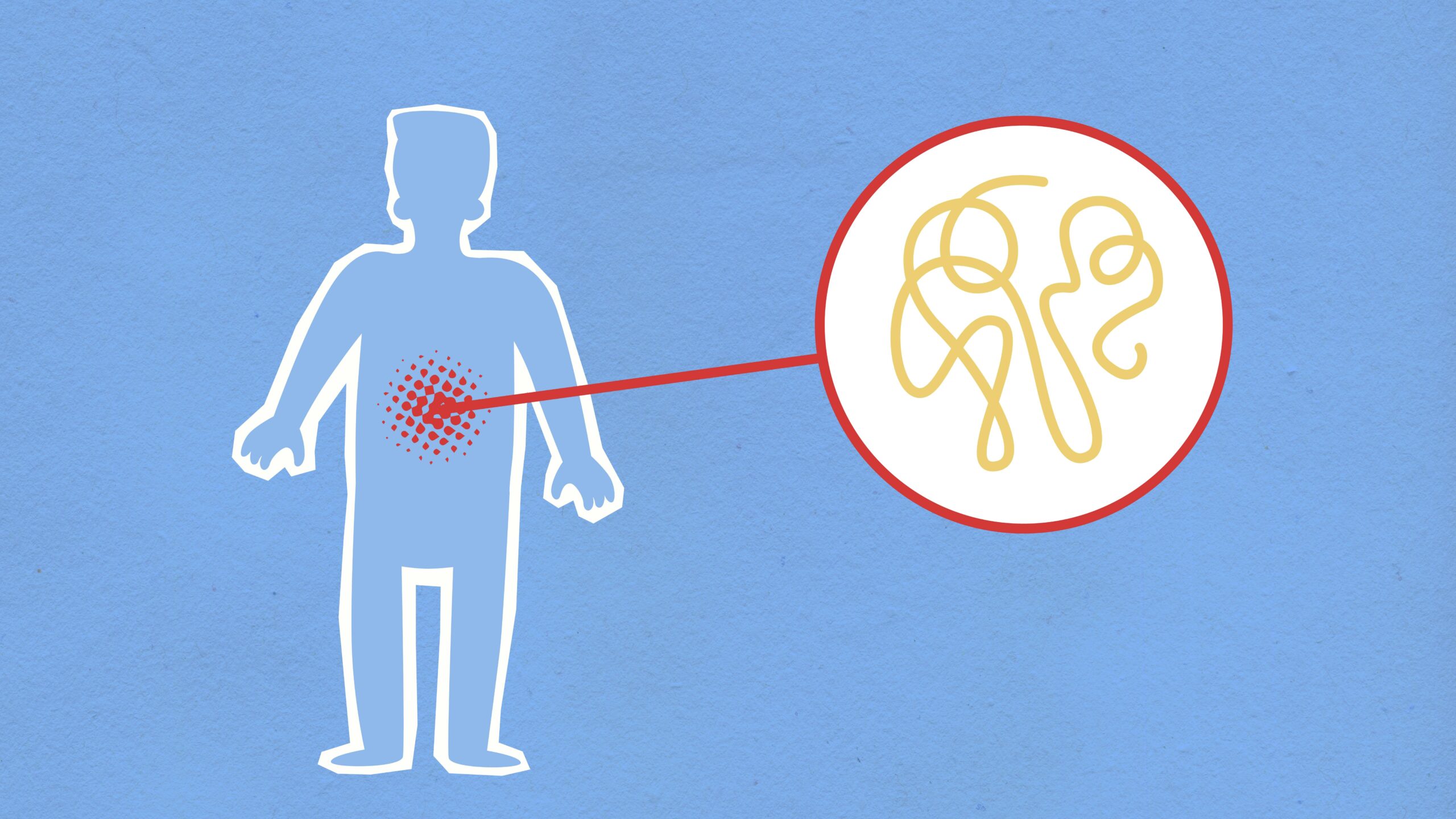Your body hosts trillions of microorganisms working silently to shape your health, immunity, and overall well-being in ways science is only beginning to understand.
🦠 The Hidden Universe Within: Understanding Your Microbiota
Inside your digestive tract lives a complex ecosystem containing approximately 100 trillion microorganisms—bacteria, viruses, fungi, and other microbes collectively known as your microbiota. This microscopic community weighs about three pounds and contains more cells than your entire body. Far from being passive residents, these microorganisms actively communicate with your immune system, influence your metabolism, and even affect your mental health.
The relationship between humans and their microbiota represents one of nature’s most sophisticated partnerships. These microbes have evolved alongside us for millennia, developing intricate systems of mutual benefit. They help digest foods we cannot break down alone, manufacture essential vitamins, protect against harmful pathogens, and critically, train and modulate our immune responses.
Understanding this relationship opens remarkable possibilities for improving health outcomes. Research over the past two decades has revealed that disturbances in microbiota composition—a condition called dysbiosis—correlate with numerous health challenges including autoimmune diseases, allergies, inflammatory conditions, obesity, depression, and even some cancers.
The Immune System’s Most Important Teacher 🎓
Your immune system faces a constant challenge: distinguishing between harmless substances and genuine threats. This discrimination requires sophisticated training, and your microbiota serves as the primary educator. From infancy through adulthood, gut microbes continuously interact with immune cells, teaching them appropriate responses to various stimuli.
The gut contains approximately 70% of your body’s immune cells, concentrated in structures called gut-associated lymphoid tissue (GALT). These immune cells don’t exist in isolation—they’re in constant dialogue with intestinal bacteria through a complex communication network involving chemical signals, metabolites, and direct cellular interactions.
Beneficial bacteria produce short-chain fatty acids like butyrate, propionate, and acetate through the fermentation of dietary fibers. These compounds serve multiple functions: they nourish intestinal cells, maintain the gut barrier integrity, and directly influence immune cell behavior. Butyrate, for instance, promotes the development of regulatory T cells that prevent excessive inflammation and autoimmune reactions.
How Microbes Calibrate Your Immune Responses
The microbiota doesn’t simply activate or suppress immunity—it calibrates responses to appropriate levels. When functioning optimally, your microbiome helps generate balanced immune reactions: strong enough to eliminate pathogens but restrained enough to avoid attacking your own tissues or overreacting to harmless substances like pollen or food proteins.
Specific bacterial strains have demonstrated remarkable immune-modulating capabilities. Lactobacillus and Bifidobacterium species, for example, enhance the production of anti-inflammatory cytokines while reducing pro-inflammatory signals. Other species strengthen the intestinal barrier, preventing unwanted substances from entering the bloodstream and triggering unnecessary immune responses.
🌿 The Modern Microbiota Crisis: Why Your Gut Health Is Under Threat
Contemporary lifestyles pose unprecedented challenges to microbiota health. Unlike our ancestors who consumed diverse, fiber-rich diets and lived in close contact with natural environments, modern humans face numerous factors that diminish microbial diversity and disrupt gut ecosystem balance.
The Western diet—high in processed foods, refined sugars, and unhealthy fats while low in fiber—starves beneficial bacteria while feeding potentially harmful species. This dietary pattern has been linked to reduced microbial diversity, a marker consistently associated with poorer health outcomes.
Antibiotic use, while sometimes medically necessary, represents another significant disruptor. These medications don’t discriminate between harmful pathogens and beneficial residents, often decimating microbial populations. Studies show that a single antibiotic course can alter the microbiota for months or even years, potentially reducing its resilience and diversity permanently.
Additional Factors Compromising Microbial Health
- Chronic stress: Releases hormones that alter gut environment and microbial composition
- Environmental chemicals: Pesticides, artificial sweeteners, and food additives can harm beneficial bacteria
- Sedentary lifestyle: Physical inactivity correlates with reduced microbial diversity
- Insufficient sleep: Disrupts circadian rhythms that regulate both immunity and microbiota
- Over-sanitization: Excessive cleanliness, especially in childhood, limits microbial exposure necessary for immune training
- Cesarean delivery and formula feeding: Reduce initial microbial colonization compared to vaginal birth and breastfeeding
Nourishing Your Microbiota: The Dietary Foundation 🥗
Food choices represent your most powerful tool for shaping microbiota composition. Every meal presents an opportunity to feed beneficial bacteria or promote dysbiosis. The key lies in understanding what your microbial partners need to thrive.
Dietary fiber stands as the cornerstone of microbiota nutrition. Unlike simple carbohydrates that you digest and absorb quickly, fiber travels intact to your colon where bacteria ferment it, producing beneficial metabolites. Unfortunately, most people consume only a fraction of the recommended 25-35 grams of fiber daily, essentially starving their beneficial bacteria.
Prebiotic-Rich Foods: Fuel for Beneficial Bacteria
Prebiotics are specific types of fiber that selectively nourish beneficial microorganisms. Incorporating diverse prebiotic sources ensures various bacterial species receive appropriate nutrition:
- Resistant starch: Cooked and cooled potatoes, green bananas, oats
- Inulin: Chicory root, Jerusalem artichokes, garlic, onions, leeks
- Pectin: Apples, berries, citrus fruits
- Beta-glucan: Oats, barley, mushrooms
- Arabinoxylan: Wheat bran, whole grains
Fermented foods deliver live beneficial bacteria (probiotics) directly to your digestive system. Regular consumption of foods like yogurt with live cultures, kefir, sauerkraut, kimchi, kombucha, miso, and tempeh introduces diverse bacterial strains while providing enzymes and nutrients that support gut health.
Beyond Diet: Lifestyle Strategies for Immune-Modulating Microbiota 💪
While nutrition forms the foundation, other lifestyle factors significantly influence microbiota composition and its immune-modulating capacity. A holistic approach addressing multiple aspects of daily life produces the most substantial benefits.
Exercise: Movement for Microbial Diversity
Physical activity independently influences microbiota composition, regardless of diet. Studies on athletes reveal they possess greater microbial diversity and higher proportions of bacteria that produce beneficial metabolites compared to sedentary individuals. Even moderate exercise—30 minutes of brisk walking most days—can positively shift microbial populations.
Exercise appears to work through multiple mechanisms: it increases blood flow to intestinal tissues, modifies bile acid composition, reduces inflammation systemically, and may directly create an intestinal environment more hospitable to beneficial species.
Stress Management: Calming the Gut-Brain-Immune Axis
The connection between psychological stress and gut health operates bidirectionally through the gut-brain axis. Chronic stress releases cortisol and other hormones that alter intestinal permeability, reduce beneficial bacteria, and promote inflammatory species. This creates a vicious cycle where dysbiosis further affects mood and stress resilience.
Practices that reduce stress—meditation, yoga, deep breathing exercises, time in nature, adequate sleep—demonstrably improve microbiota composition. Even short daily mindfulness practices can reduce inflammatory markers and support healthier bacterial populations.
Sleep: The Circadian Rhythm Connection ⏰
Your microbiota follows a circadian rhythm, with bacterial populations fluctuating throughout the day-night cycle. This rhythm influences metabolism, immune function, and barrier integrity. Irregular sleep patterns, shift work, and chronic sleep deprivation disrupt these rhythms, promoting dysbiosis and inflammatory conditions.
Prioritizing consistent sleep schedules with 7-9 hours nightly supports both immune function and microbial health. The relationship is reciprocal: a healthier microbiota produces sleep-promoting neurotransmitters and metabolites, creating a positive feedback loop.
🔬 Targeted Approaches: Probiotics and Supplements
While whole foods should form the primary strategy, specific supplements can provide additional support, especially when addressing existing dysbiosis or specific health concerns.
Understanding Probiotic Supplementation
Not all probiotics deliver equal benefits. Effectiveness depends on the specific strains, dosage, delivery mechanism, and individual microbiota composition. Research supports particular strains for specific applications:
| Health Goal | Beneficial Strains | Typical Dosage |
|---|---|---|
| General immune support | Lactobacillus rhamnosus GG, Bifidobacterium lactis | 10-20 billion CFU |
| Reducing inflammation | Lactobacillus plantarum, Bifidobacterium longum | 10-50 billion CFU |
| Digestive health | Saccharomyces boulardii, Lactobacillus acidophilus | 5-10 billion CFU |
| After antibiotics | Multi-strain formulas with Lactobacillus and Bifidobacterium | 20-50 billion CFU |
Quality matters significantly in probiotic supplements. Look for products that specify strains (not just species), guarantee live organisms through expiration, use protective delivery systems, and come from reputable manufacturers with third-party testing.
Supportive Supplements for Gut Immune Health
Several other supplements can support the microbiota-immune axis. Omega-3 fatty acids from fish oil reduce gut inflammation and promote beneficial bacteria growth. Vitamin D, often deficient in modern populations, plays crucial roles in immune regulation and maintaining intestinal barrier integrity. Zinc supports gut lining repair and immune cell function.
Polyphenol-rich supplements like green tea extract, resveratrol, and curcumin act as prebiotics for beneficial bacteria while providing direct anti-inflammatory effects. Glutamine, an amino acid, nourishes intestinal cells and supports barrier function, particularly valuable during periods of stress or after illness.
The Long Game: Building Resilient Microbial Immunity 🎯
Improving microbiota health isn’t an overnight transformation. The gut ecosystem responds to consistent patterns rather than isolated interventions. Beneficial changes typically become noticeable within weeks, but building truly resilient microbial diversity requires months of sustained effort.
Start by identifying your most impactful opportunity areas. For some, this means dramatically increasing dietary fiber intake. For others, addressing chronic stress or improving sleep consistency offers the greatest leverage. Small, consistent changes compound over time into substantial improvements.
Tracking Your Progress
While professional microbiome testing exists, you can monitor improvements through observable health markers. Many people notice enhanced digestion, more stable energy levels, improved mood, fewer infections, better skin health, and reduced inflammatory symptoms as their microbiota improves.
Keep a simple journal noting dietary patterns, stress levels, sleep quality, exercise, and how you feel. Patterns emerge over weeks that reveal which interventions provide the most benefit for your unique biology.
Personalized Microbiota: The Future Is Individual 🔮
Emerging research reveals that optimal microbiota composition varies between individuals based on genetics, environment, and health history. What constitutes a healthy microbiome for one person may differ for another, explaining why dietary recommendations that work wonderfully for some prove ineffective for others.
This understanding is shifting healthcare toward more personalized approaches. Some people respond dramatically to specific probiotic strains, while others show minimal benefit from the same products. Certain dietary fibers promote beneficial bacteria in some individuals while causing digestive discomfort in others.
Pay attention to your body’s feedback. If a recommended food consistently causes problems, it may not suit your current microbiota, regardless of its general health benefits. Gradual introduction of new foods allows your microbiota to adapt while revealing which changes your system tolerates well.

Empowering Your Health Through Microbial Partnership 🌟
The recognition that trillions of microorganisms actively shape your immune function transforms how we approach health optimization. Rather than viewing your body as an isolated entity, you can appreciate it as an ecosystem requiring diverse inputs and balance to function optimally.
This perspective empowers practical action. Every meal, every movement session, every stress-reduction practice, and every night of quality sleep represents an investment in your microbial partners and, by extension, your immune resilience. The microbiota responds to these investments with improved diversity, enhanced beneficial species, and better immune modulation.
The power to influence your microbiota—and through it, your immune health—lies largely within your control. While genetics and past experiences matter, daily choices consistently shape your microbial ecosystem. This ongoing relationship offers tremendous opportunity for improving not just disease resistance but overall vitality, energy, and wellbeing.
Begin where you are with accessible changes: add more diverse plant foods to meals, incorporate fermented foods regularly, move your body daily, prioritize sleep consistency, and develop stress management practices. These foundational steps create the conditions for beneficial microbes to flourish and for your immune system to function at its best.
Your microbiota represents an internal pharmacy, immune trainer, and metabolic regulator all in one. By understanding and nurturing this remarkable ecosystem, you unlock profound potential for optimizing health, preventing disease, and cultivating resilience that serves you throughout life. The journey toward a healthier microbiota is simultaneously a journey toward a healthier, more vibrant you.
Toni Santos is a deep-biology researcher and conscious-evolution writer exploring how genes, microbes and synthetic life inform the future of awareness and adaptation. Through his investigations into bioinformatics, microbiome intelligence and engineered living systems, Toni examines how life itself becomes a field of awakening, design and possibility. Passionate about consciousness in biology and the evolution of living systems, Toni focuses on how life’s architecture invites insight, coherence and transformation. His work highlights the convergence of science, philosophy and emergent life — guiding readers toward a deeper encounter with their living world. Blending genetics, systems biology and evolutionary philosophy, Toni writes about the future of living systems — helping readers understand how life evolves through awareness, integration and design. His work is a tribute to: The intertwining of biology, consciousness and evolution The emergence of microbial intelligence within and around us The vision of life as designed, adaptive and self-aware Whether you are a scientist, thinker or evolving being, Toni Santos invites you to explore the biology of tomorrow — one gene, one microbe, one awakening at a time.




